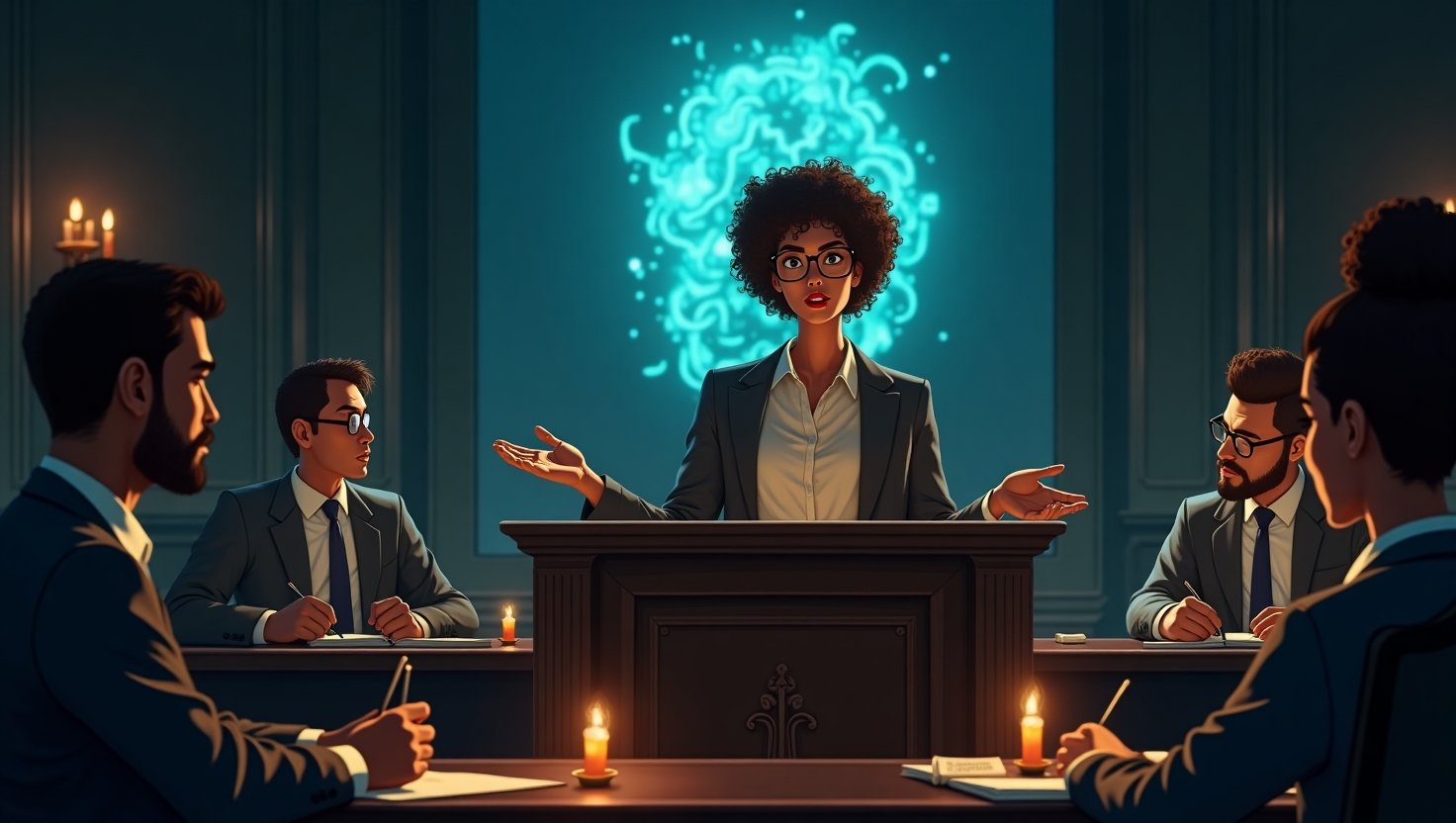Anthropic Copyright Lawsuit: Navigating the Complexities of Fair Use in AI Training Data
Introduction
In the burgeoning field of artificial intelligence, the Anthropic copyright lawsuit has emerged as a pivotal case that underscores the complexities surrounding fair use in AI. As AI systems increasingly rely on vast amounts of data to function effectively, understanding the intricacies of fair use becomes essential, especially in the realms of AI ethics and copyright law. The lawsuit against Anthropic tests the boundaries between the permissible use of copyrighted materials and the protections afforded to expressive works. This analysis will delve into the Anthropic case, shed light on current trends in copyright law, and explore future implications for AI training data practices.
Background
The Anthropic copyright lawsuit came to prominence when a recent court ruling determined that Anthropic’s use of published works to train large language models (LLMs) does not qualify as fair use. The crux of the case lies in whether the usage of expressive, published works—spanning both fiction and non-fiction—can be legally leveraged for AI training purposes. This ruling could reshape the landscape of AI training data and bring new challenges to companies in navigating the fine line between innovation and infringement.
According to a detailed examination available on Hackernoon, the decision leveraged key legal precedents like Campbell and Harper & Row, reinforcing authors’ rights against Anthropic’s fair use claims. These precedents emphasize the importance of the nature of the copyrighted work, highlighting the nuances of copyright law that any modern AI entity must consider rigorously.
Recent Trends in Copyright Law and AI
Current trends in copyright law, specifically as they pertain to AI, indicate a robust protectionist stance for authors. Notable court cases have reaffirmed the necessity of granting authors control over their creations, impacting AI practices significantly. In the context of the Anthropic lawsuit, legal precedents serve as a roadmap, drawing boundaries on what constitutes legitimate fair use.
For instance, as cited in the Hackernoon article, the Campbell case solidified the idea that transforming a work in nature and purpose must be significant to claim fair use—a standard Anthropic failed to demonstrate. Much like an artist reimagining a beloved opus, AI developers face hurdles in proving their transformative intent when utilizing copyrighted inputs.
Insights from the Anthropic Case
The Anthropic copyright lawsuit forces us to confront ethical dilemmas that arise from AI’s capacity to mimic and recreate. Unlike humans who draw inspiration organically, AI systems depend on direct inputs from pre-existing works, casting a spotlight on AI ethics. The case highlights the necessity of discerning how the use of expressive works, pivotal in diverse training datasets, aligns with ethical principles and legal mandates.
A powerful analogy would be considering AI as a cookbook reliant on recipe contributions. Just as one cannot publish a recipe verbatim from a popular chef without changing its essence, AI systems must ensure that any “inspiration” drawn from copyrighted works is transformative and not mere replication.
Future Forecast on AI and Copyright
Looking ahead, the outcomes of the Anthropic lawsuit suggest a significant shift in how copyright law might evolve to accommodate AI’s unique challenges. There is potential for more stringent regulations and the establishment of clearer guidelines that govern AI training data. The ruling underlines an urgent need for AI developers to craft ethical standards, fostering a balance between technological advancement and rightful protection of creative works.
The wind seems to blow toward increased scrutiny, potentially resulting in more legal battles as AI continues to intersect with protected content. Developers may need to exercise greater diligence in sourcing data, aligning practices with emerging legal standards much like navigators steering through a stormy ethical sea.
Call to Action
As AI continues to advance, it is critical for both developers and stakeholders to stay informed about evolving copyright laws. This situation underscores the importance of understanding AI ethics and fair use, suggesting further reading on the subject to better navigate these complex landscapes (Hackernoon). Embracing informed, proactive strategies will be crucial for anyone looking to harness AI’s potential ethically and legally.
To delve deeper, engaging with resources like Hackernoon’s article on the subject and examining similar legal precedents will enrich one’s perspective—equipping AI innovators to face the future confidently and compliantly.

